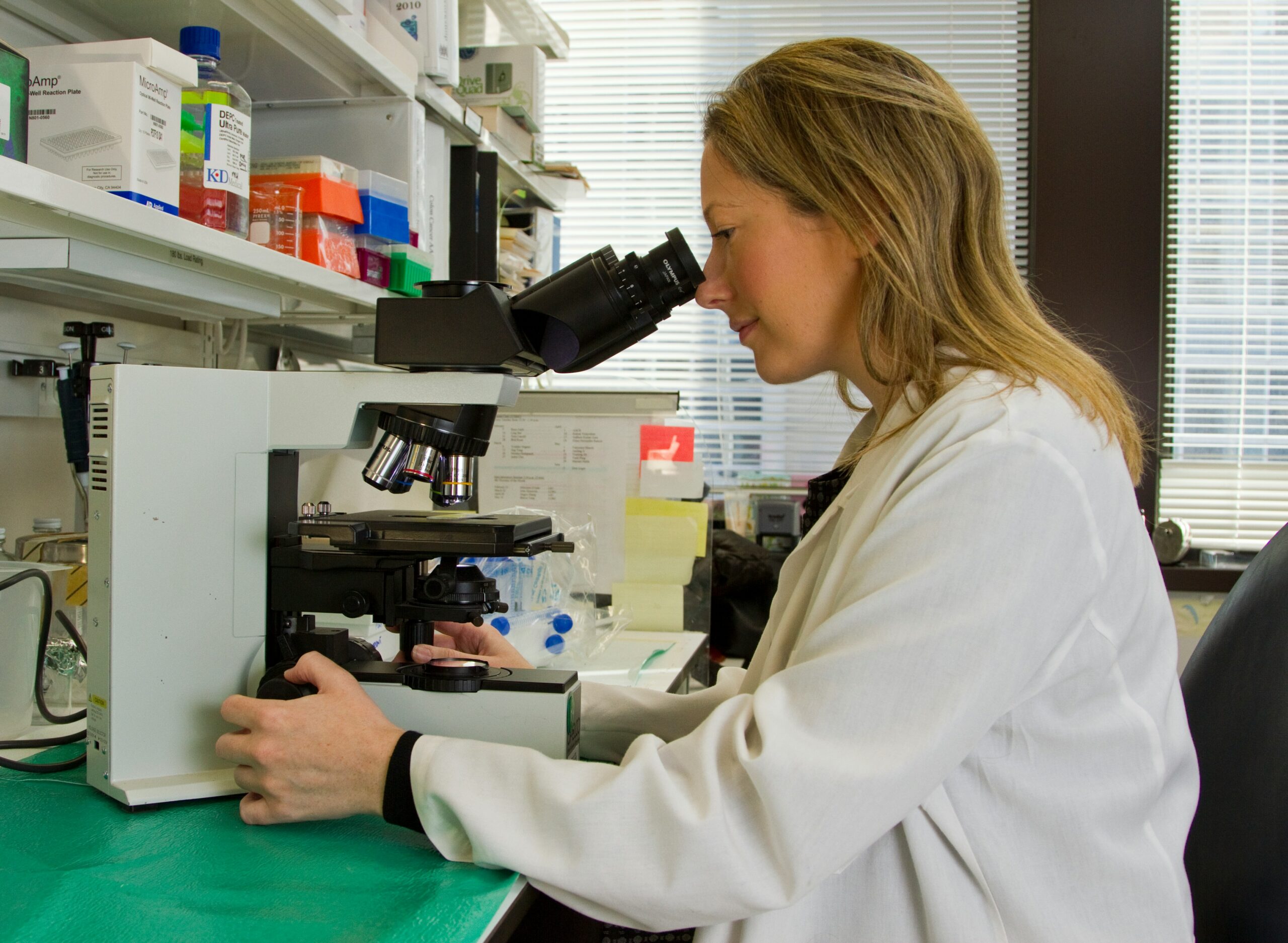No matter how hard we strive to lead a healthy life, eating well, keeping active, prioritising sleep, and paying attention to our wellbeing, our bodies can have a different agenda. Some illnesses move quietly in the background, undetected, until they are far advanced. Ovarian cancer is one of these.

Ovarian Cancer: A Silent Threat with New Hope
Often called The Silent Killer, it doesn’t shout for attention in its early stages. Instead, it whispers with vague signs that are easy to dismiss or attribute to other things; changes we associate with menopause, digestive discomfort, or simply the wear and tear of daily life. This is why awareness is so critical: too many women are unaware of how dangerous ovarian cancer is, or how quietly it can develop. Ovarian cancer mainly affects women over the age of 50, with 8 out of 10 diagnoses found in this age group. Furthermore, 65% of women don’t even know what ovarian cancer is.

Ovarian cancer is not only confined to later life. It can develop in younger women, especially where there is a history of ovarian or breast cancer in the family, or when women are from an Ashkenazi Jewish descent. Those who are at higher risk, there is an increased likelihood that you may be carrying one of the genes, such as BRCA1 or BRCA2.
Women who learn that they carry these mutations also learn that they have up to a 40% chance of developing ovarian cancer during their lifetime. Knowing this risk, and being aware of your own family history, can be a powerful step in protecting yourself and those you love.
There is now encouraging news: regular ovarian cancer surveillance through the NHS for these high risk women. This monitoring service is a ROCA test and is a positive breakthrough in helping to detect ovarian cancer at an earlier, more treatable stage.
A Stark Reality
Carrying a BRCA mutation can feel like living with a time bomb, and for years, the only option for these women was surgery to remove their ovaries and fallopian tubes. This remains the only guaranteed way to prevent ovarian cancer from developing, and for those women who would have faced this dreaded disease, it is the step that ultimately saves their lives.
But the decision to undergo such a procedure is not a simple one. It strips a woman of the ability to have a child and it plunges a woman into instant menopause, which is hard to manage and can lead to long-term health problems. So, while doctors will stress the importance of undergoing preventive surgery for women who no longer want to conceive, for others, surgery can be devastating. It can bring anxiety and uncertainty and will require difficult conversations with loved ones.

A Turning Point for BRCA Carriers
Genetic testing for BRCA1 and BRCA2 mutations has been available for years, primarily in connection with breast cancer. But women carrying these mutations also face a much higher risk of developing ovarian cancer. Until now, options for early detection were limited.
The ROCA test provides more choice for women with a BRCA mutation when they do not feel ready for preventative surgery. Thanks to extensive research that has been recognised by the UK’s National Institute for Health and Care Excellence (NICE), this newly surveillance test is now available on the NHS. It is requires a blood sample, which is used to look for signals of ovarian cancer. Clinical trials have shown that using the ROCA Test every four months can increase the chances of catching ovarian cancer at an earlier, more treatable stage and often before it has had an opportunity to spread beyond the pelvis. For women who are not ready for preventative surgery, opting for regular surveillance for a few years can provide important reassurance, giving women time and space to make the decisions that are right for them.
A Journey of Research and Dedication
This breakthrough hasn’t arrived overnight. It represents years of painstaking research, clinical trials, and collaboration between academic and industry scientists and women’s health clinics. Consultants have worked tirelessly to translate a challenging problem into something clear and accessible for women.
“We have reached a significant milestone in being able to offer ROCA surveillance on the NHS”
explains Dr. Julie Barnes, who has been working tirelessly with key leading clinicians for over a decade.
“This test is not just about science; it’s about giving women the chance to make informed choices about their health, and it is an important step towards the day when ovarian cancer can either be prevented or detected and treated at its earliest stages,”

The Emotional Toll
Ovarian cancer does not just affect the woman diagnosed; its shadow reaches across families, partners, and loved ones. The uncertainty of genetic testing, the weight of difficult decisions around surgery, and the vigilance of ongoing monitoring can take a heavy emotional toll.
In the recent film We Live in Time, starring Florence Pugh, the conversation around ovarian cancer has also been given a platform. The film tenderly approaches the subject with sensitivity whilst opening up much-needed dialogue about this often-overlooked disease. For many, the film has opened conversations about family history, genetics, and the importance of asking difficult but vital questions.

Real Stories: The Power of Prevention and Early Detection
Some women have already accessed this new NHS pathway. Their stories highlight how early detection changes everything.
For Emily, discovering she carried a high-risk gene meant choosing preventative surgery; a difficult decision, but one that gave her peace of mind and spared her children from growing up without their mother.
For another patient, Natasha, it meant careful monitoring while she pursued her dream of motherhood, knowing she was being closely watched. “I am so grateful that the ROCA Test existed. I would have hated to go through the surgery any earlier. It gave me time to try, and successfully, have a child”
These case studies underline an essential truth: when women know their risk of ovarian cancer, they can plan a course of action that fits with their stage in life and through consultation with their doctor. Whether to act immediately or wait with regular surveillance, women gain control over decisions in an informed way.

Know the Signs of Ovarian Cancer
While early detection can be challenging, being aware of symptoms can make a significant difference. Speak to your GP if you experience any of the following, particularly if they are new, frequent, or persistent:
• Persistent bloating
• Feeling full quickly or loss of appetite
• Pelvic or abdominal pain
• Urinary urgency or frequency
• Unexplained fatigue
Quick facts:
• 65% of women don’t know what ovarian cancer is.
• Ashkenazi Jewish women are at higher risk of BRCA gene mutations.
• 8 in 10 cases are diagnosed in women over 50.
• Detection in Stage 1 gives 90% of living 5 years whilst in Stage 4 only 15%
Know your family history
If you have just one relative with ovarian cancer and have not already been approached for genetic counselling and genetic testing, then speak to your GP.

Looking Ahead
Ovarian cancer has long been one of the most complex cancers to detect early. Now, with more widely available genetic testing and options for surveillance in some women, the tide may be turning. For some women, preventative surgery may be the way forward; for others, managing their risk through surveillance may be preferred. But for all, it represents progress.
This development is more than a medical achievement; it is a shift towards empowering women with knowledge, choices, and hope. Ovarian cancer may still be silent, but with research, awareness, and compassion, it is becoming less invisible.
If you’re concerned about your risk of ovarian cancer or would like to learn more about genetic testing, these organisations can help:
🔹 NHS Jewish BRCA Testing Programme
Advice about this programme which provides an opportunity to better identify individuals with a BRCA gene fault in the Jewish community in England.
🔹The Eve Appeal
The leading charity gynaecological cancer charity, which has funded some of the research into the ROCA Test
🔹Ovacome
Providing support and information to anyone affected by ovarian cancer
👉www.ovacome.org.uk
🔹 NHS Genetic Testing Services
If you have a strong family history of ovarian or breast cancer, speak to your GP about a referral to a genetic clinic for risk assessment and testing.
👉 www.nhs.uk/tests-and-treatments/genetic-and-genomic-testing/
🔹 BRCA Support
Support groups and resources for those affected by BRCA gene mutations.
👉 www.brcasupport.org.uk



